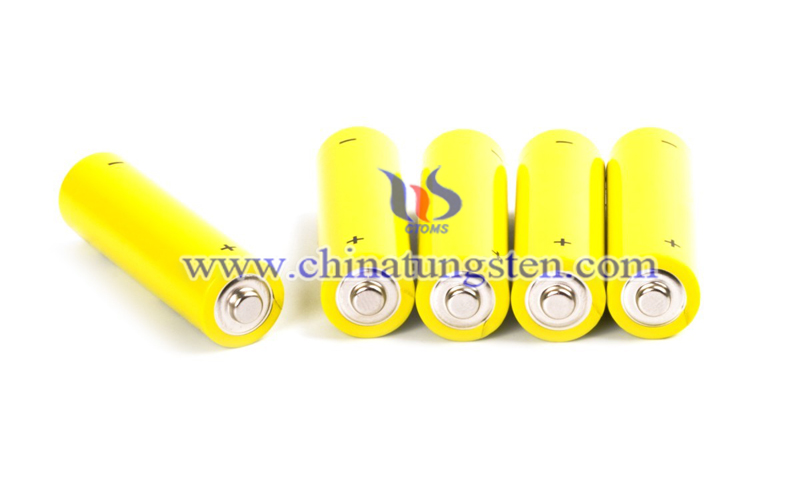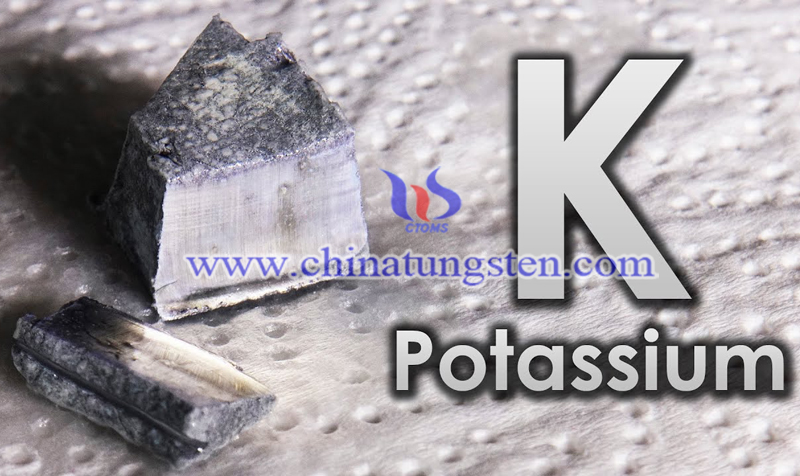Self-Healing Potassium Batteries: Cheaper, Longer Life Than Lithium Batteries
- Details
- Category: Tungsten's News
- Published on Tuesday, 03 March 2020 20:16
Lithium batteries are more expensive than potassium batteries, and lithium's environmental issues are in large volumes, and tends to catch on fire from time to time, while it is currently the best solution for battery storage of electric vehicles and equipment, other alternatives are gradually emerging, and in fact, a promising alternative may be potassium metal battery. According to foreign media, New Atlas reports.
Potassium is both cheap, abundant and tends to be easier to work with, meaning lower manufacturing and material costs. Using full potassium metal anodes, batteries can be built with energy densities that are comparable to what lithium provides.

So far, there is also a problem with lithium batteries: dendrite formation. Over time, as the battery is charged and discharged again and again, bits of metal (ether lithium or potassium) begins to attach themselves to the anode. This does not happen uniformly, little spiky branches called dendrites begin to form, and eventually, they were long enough to pierce the insulating membrane, separating the anode from the cathode and short-circuited the battery. This causes heat build-up and occasionally fires, and effectively reduces battery life.
Now a team of scientists from Rensselaer Polytechnic Institute in New York State say they have developed a self-healing technology that could clean these dendrites off the anode as you charge the battery overnight, preventing them from ever getting long enough to cause problems. They believe that it is now possible to bring cheap, long-life potassium batteries into the mass market.

The technology sounds odd because it is essentially high-rate charging and discharging. Researchers say that by operating in a controlled environment, they can precisely control the heat in the battery, increasing the heat to the point where potassium does not melt, but it activates surface diffusion, which shifts the metal to the side. The same research team demonstrated a similar self-healing capability for dendrites in lithium batteries back in 2018, but it required significantly higher temperatures.
"With this approach, the idea is that at night or whenever you're not using the battery, you would have a battery management system that would apply this local heat that would cause the dendrites to self-heal," The research's lead author and an endowed professor of mechanical, aerospace, and nuclear engineering at Rensselaer Nikhil Koratkar said, "I want to see a paradigm shift to metal batteries. Metal batteries are the most efficient way to construct a battery; however, because of this dendrite problem, they have not been feasible. With potassium batteries, I'm more hopeful." The study was published in PNAS.
- Rare Earth Manufacturer & Supplier, Chinatungsten Online: www.chinatungsten.com
- Tungsten News & Prices of China Tungsten Industry Association: www.ctia.com.cn
- Molybdenum News & Price: news.molybdenum.com.cn
- Tel.: 86 592 5129696; Fax: 86 592 5129797; Email: sales@chinatungsten.com



 sales@chinatungsten.com
sales@chinatungsten.com